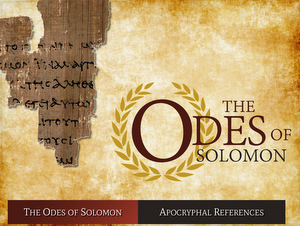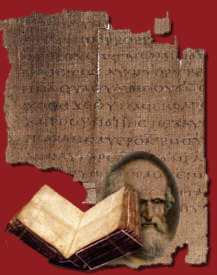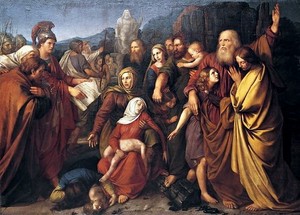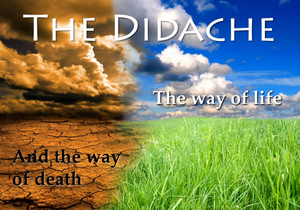The Didache (Greek for "teaching") is a document that circulated among the early believers in the first and second century. It is attributed to the twelve apostles as a collective work of teachings of the Master, Messiah Yeshua. It outlines a standard of living out a life of faith for those early believers much in the same way that a manual might identify the expected behavior of members of a church today.
The Columbia Encyclopedia offers this:
Didache [Gr.,=teaching], early Christian work written in Greek, called also The Teaching of the Twelve Apostles. Dates for its composition suggested by scholars have ranged from AD 50 to AD 150. Discovered in 1875 by Bryennios, Greek Orthodox metropolitan of Nicomedia, it is an invaluable primary source for the primitive church. The first part is a collection of moral precepts, perhaps based on rabbinical teachings (there are many quotations from the Old Testament); the second portion gives directions for baptism and the Eucharist; the third contains directions for bishops and deacons. The Didache may be of composite authorship. A short work, it has been published in English translation in collections of patristic literature. 1
Below is an interlinear translation (Greek text with a literal English translation immediately below it) based upon work by Philip Dybel. This format is intended for detailed study rather than plain reading. A non-interlinear translation by J.B. Lightfoot and J.R. Harmer is available here for easier reading.
 The Odes of Solomon are attributed to an author in the first three centuries and is almost certainly not the writing of King Solomon. There are some highly questionable and potentially offensive passages in this text.
The Odes of Solomon are attributed to an author in the first three centuries and is almost certainly not the writing of King Solomon. There are some highly questionable and potentially offensive passages in this text. 


